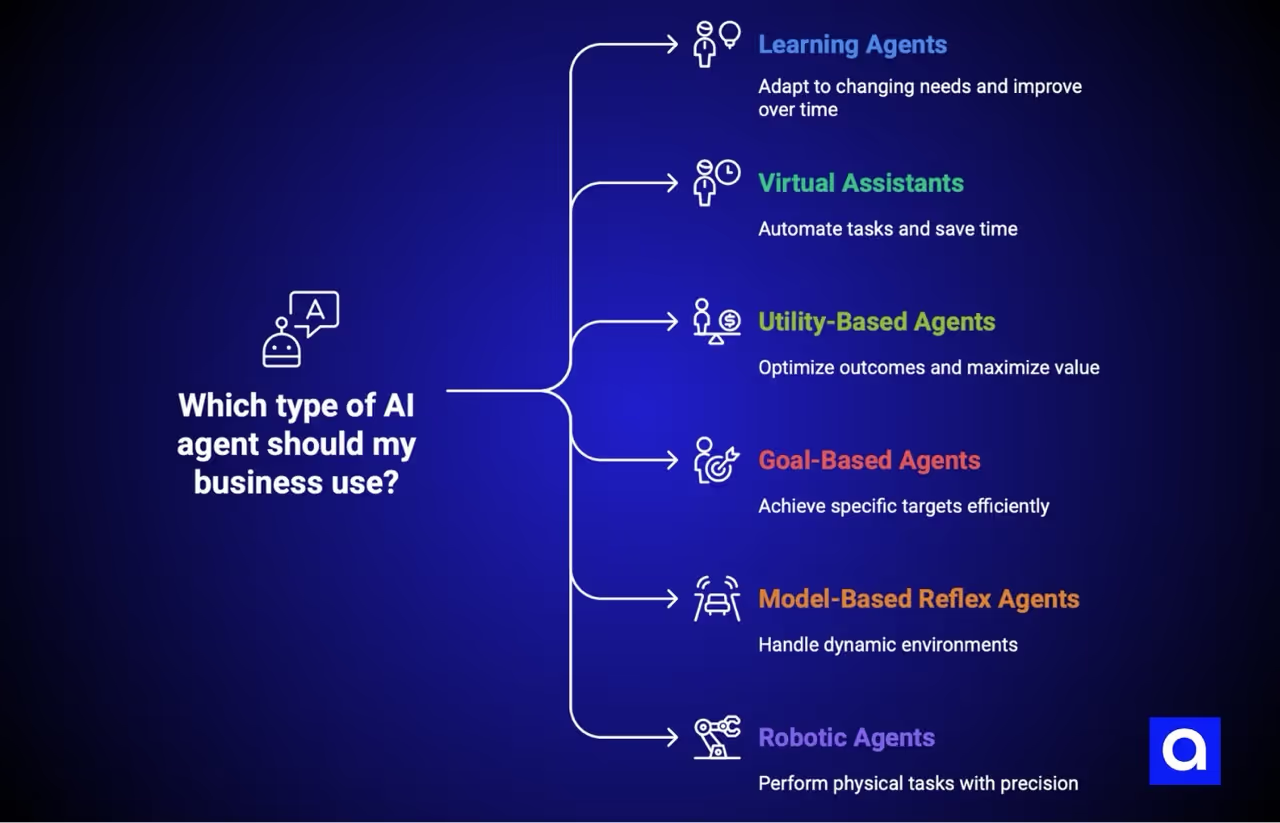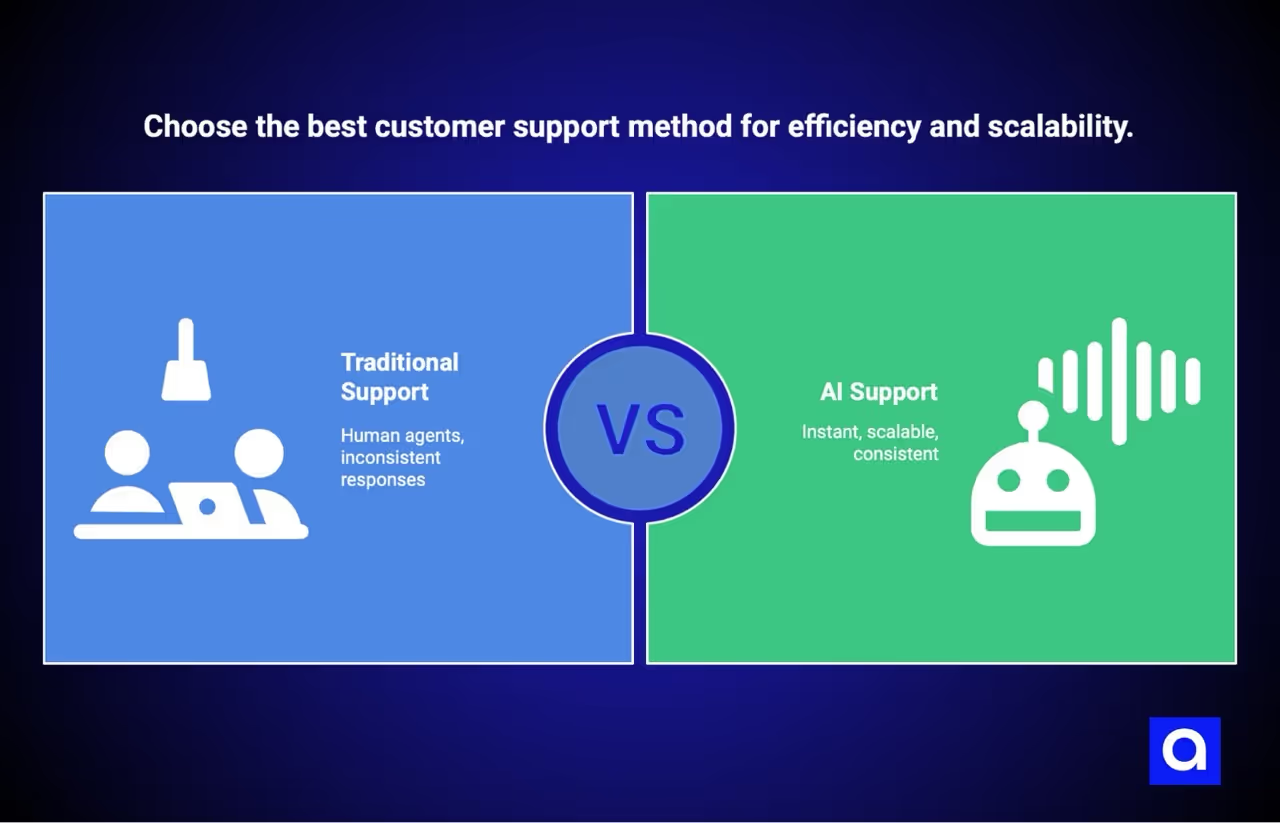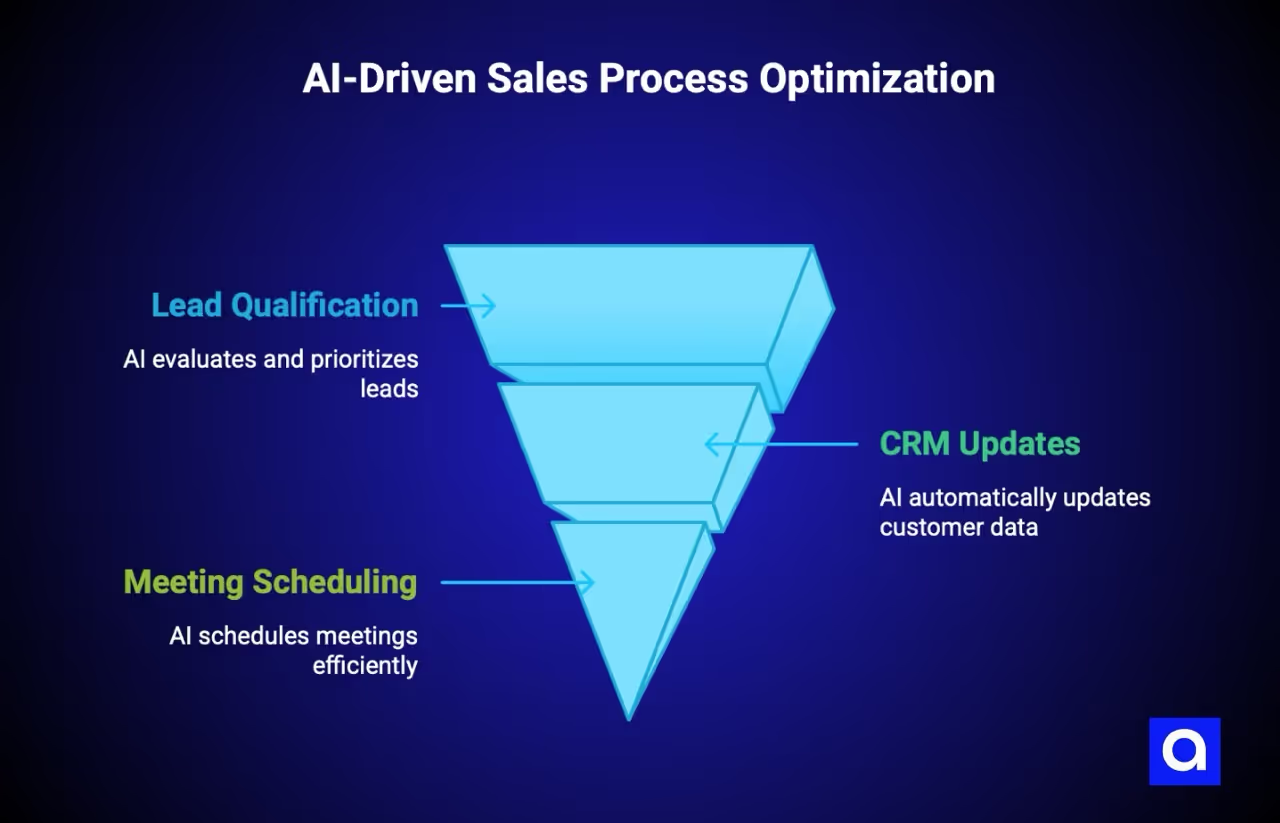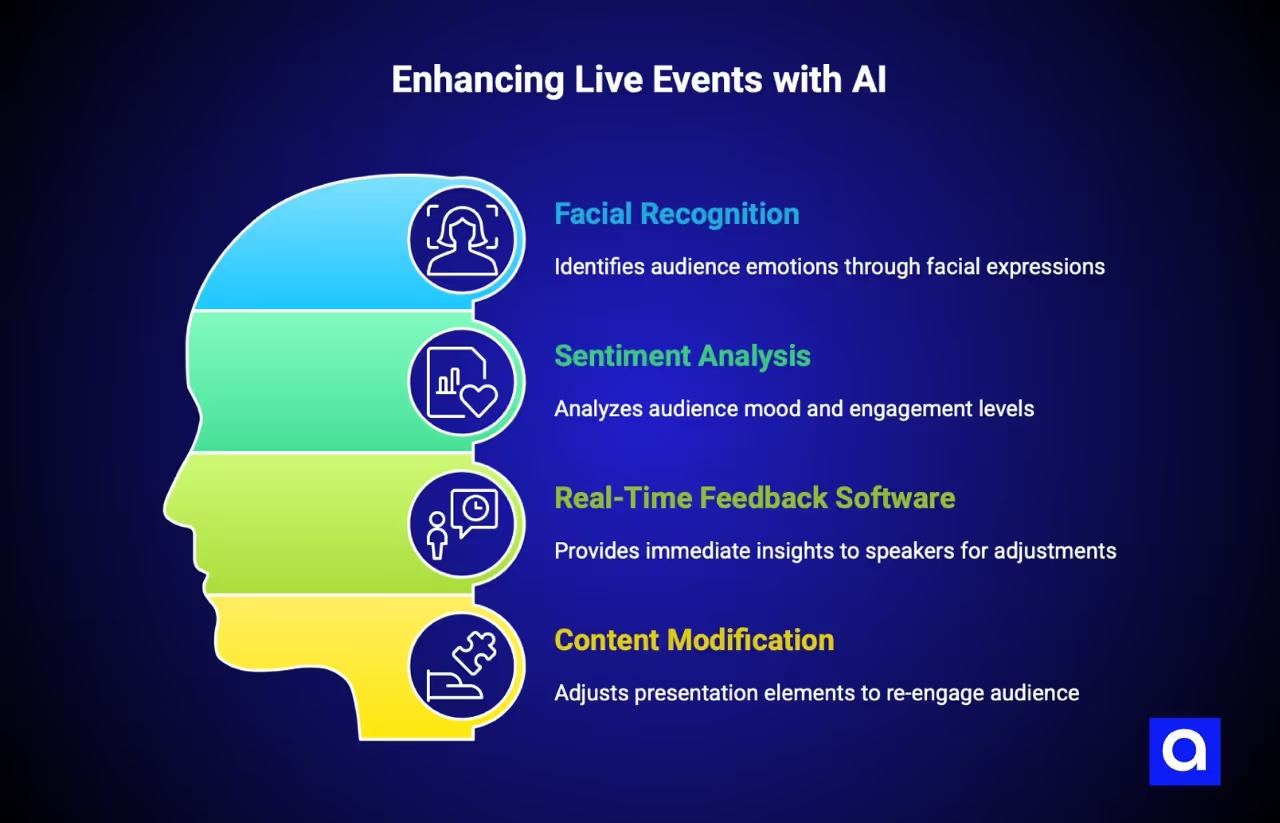
At Azumo, we build AI solutions that actually work for businesses. Whether it's customer service or improving internal processes, AI agents are transforming how businesses operate.
In this process, we follow strict data governance practices and comply with industry regulations like SOC 2, GDPR, and HIPAA to ensure the security and privacy of all data involved.
According to Gartner, over 40% of agentic AI projects will be scrapped by 2027 due to escalating costs and unclear business value.
But at Azumo, we believe otherwise.
When implemented correctly, AI agents can drive substantial value by automating complex tasks, improving decision-making, and enhancing operational efficiency.
In this article, we’ll highlight 14 real-world use cases where AI agents are delivering measurable results, backed by Azumo’s experience and our vision for the future of AI in business
What Are AI Agents?
Imagine an AI assistant that’s always working: making decisions, processing data, and getting smarter over time. That's what an AI agent does: it handles tasks such as answering customer queries, analyzing large datasets, and even automating complex business processes.
At Azumo, we create AI agents that transform over time as they interact with your data. They are not fixed tools; they evolve and become more effective over time.
Why AI Agents Matter for Your Business
Here is why you should care about AI agents:
- Save time: Automate repetitive tasks so that your team can focus on high-priority projects.
- Save money: Reduce the need for manual work and minimize errors.
- Make more informed decisions: AI agents decode data and allow you to make informed decisions faster.
Types of AI Agents: Which One Will Benefit Your Business?

Here’s an overview of the different types of AI agents and how they can benefit your business:
1. Learning Agents
These agents use reinforcement learning or supervised learning techniques to maximize their actions, decisions, or responses based on the feedback they receive from their environment. They essentially get brighter and better as they process more information.
The greatest advantage of learning agents is their ability to address changing business needs, environments, and user behavior. Unlike traditional AI systems, which are static and perform a single task through an invariant set of rules, learning agents constantly adjust their processes and strategies, improving with each passing moment.
For example, take a learning AI agent that handles customer service in an online store. At the start, it’s trained on a bunch of past customer chats, such as questions, complaints, and how those issues were solved.
Once it goes live, the agent starts learning from real conversations. It pays attention to how people react. If its responses achieve quick resolutions or positive feedback, it reinforces those strategies. If customers seem confused or dissatisfied, the agent adjusts by trying new approaches in future interactions.
As it keeps learning, the agent gets better. It begins to recognize returning customers, tailors responses based on their history, and even starts to guess what someone needs before they finish typing. It also learns when it’s better to step back and let a real person take over.
However, I should note that not all agents are ready to learn independently, so we typically need to create a specific learning environment, with the agent developing and adapting as business needs change.
2. Virtual Assistants
Virtual assistants use Natural Language Processing (NLP) to perform tasks like answering questions, scheduling meetings, and setting reminders.
They can understand context and interact with users in a more human-like manner, making them efficient at handling repetitive tasks.
These agents integrate with calendars, emails, and even other software tools to automate day-to-day activities. Their primary benefit is time savings, as they can handle a wide range of administrative tasks without human intervention.
We are collaborating with a partner to develop multiple virtual assistants for a variety of travel industry applications, for one of the world's largest carriers. These mobile-first web applications use voice integration to enable the virtual assistant to manage several distinct tasks and successfully resolve customer issues.
3. Utility-Based Agents
These agents are designed to optimize specific business outcomes by making data-driven decisions that maximize value.
Utility-based agents evaluate various parameters, such as demand, competition, and resources, to choose actions that result in maximum benefit to the business.
The primary purpose of utility-based agents is to make decisions that directly impact critical metrics like revenue, efficiency, and customer satisfaction while minimizing human intervention.
For instance, imagine having a pricing optimization agent that sets product prices based on demand, competitor prices, and your inventory levels. This would potentially increase sales, while demanding minimal effort from your staff.
4. Goal-Based Agents
Goal-based agents are bound by a predetermined goal they want to meet, making them optimal for tasks requiring a given end result. The agents work solely to ensure a specific target is met. They make choices guided by the outcome desired, ensuring efficiency and accuracy in the process.
Unlike other agents that may react to data in real-time or optimize for immediate performance, goal-based agents are more goal-oriented, always attempting to reach a set objective.
Imagine a delivery system where an AI agent tracks traffic and weather conditions around the clock to plan the most effective routes. The agent can automate logistics and make customers happy.
5. Model-Based Reflex Agents
Model-based reflex agents generate responses to their environment's changes based on an internal model. The model enables the agent to predict future states or effects from provided data and, correspondingly, generate a response.
The most valuable feature of model-based reflex agents is the fact that they are capable of dealing with dynamic environments. They have the reasoning and data to keep evaluating the situation and changing their actions to ensure they get the best outcome.
For example, an autonomous car uses a model to estimate traffic and road conditions, altering its behavior based on prevailing information to ensure a safe drive.
6. Robotic Agents
Robotic agents are physical AI systems designed to perform activities in the physical world, usually as automated activity or interaction. In relation to software-based agents, they consist of hardware and are capable of performing precise, complex operations that traditionally must be performed manually by humans.
Robotic agents have wide applications and are prevalent in manufacturing, healthcare, logistics, and home automation.
In manufacturing, robotic agents can be utilized to assemble parts, inspect quality, or package products. Such agents optimize throughput and reduce the chances of defects, leading to higher productivity and cost savings.
In medicine, robotic agents are revolutionizing surgery. A robotic surgical aide, for example, helps a surgeon to enhance precision and limit human error. These systems can provide real-time feedback to doctors, offer better visualizations of the operating site, and even assist with micro-level movements in delicate procedures.
Robotic agents are also being introduced in warehouse and logistics operations, where they can take care of inventory independently, sort packages, and move goods with efficiency. All such tasks that were earlier performed through gigantic human teams are now being carried out at high speed and reliability by robots, thereby enhancing the overall speed of operations.
14 Real Ways AI Agents Are Helping Businesses Like Yours
Here is how Azumo has already leveraged AI agents for customers, and potential use cases you can implement for your business:
- 24/7 Customer Support

Traditionally, customer service relied heavily on human agents to respond to queries, troubleshoot, and support. The process used leads to lagged wait times, inconsistent responses, and costly operations. Today, AI agents are stepping in to bridge these limitations so that companies can deliver instant, scalable, and consistent support.
For instance, Charlibot, our AI-powered chatbot, integrates with platforms like WhatsApp, Slack, and Facebook Messenger. It answers questions 24/7 so that your team can spend their time answering more complex questions.
- Brand Engagement with Voice Technology
Voice interaction is emerging as a powerful force for forging strong connections between companies and their customers.
By allowing customers to interact with brands in an intuitive, conversational manner, voice technology makes the experience more interactive and intimate, fostering brand affection and loyalty.
For example, Quizcovery, an Alexa Skill for the Discovery Channel, enables users to engage with the brand through trivia, offering an engaging, voice-interactive experience that builds brand affection.
- Operational Efficiency Behind the Scenes
AI agents typically run in the background, performing tasks that otherwise would take valuable human time.
Such agents handle routine, repetitive processes that are essential to business operations but do not entail high-level decision-making.
In doing so, they free up employees to focus on more valuable activities requiring critical thinking, creativity, and emotional intelligence.
An example of an AI agent that improves the operational efficiency behind the scene is an agent for a client in the energy field that analyzes sensor data to filter out false pipeline alarms, saving time and resources by only deploying field crews when there’s a real issue.
- Sales and Marketing Made Easier

AI agents streamline the sales and marketing process by automating lead qualification, CRM updates, and meeting scheduling. AI agents enable sales teams to concentrate on high-value activities by rapidly evaluating incoming leads and prioritizing those most likely to convert.
AI agents also keep your CRM up to date by logging interactions and updating customer information automatically, eliminating manual entry. Secondly, AI agents also take care of scheduling the meetings and saving time.
For example, we built a sales automation agent that qualifies leads, updates CRM systems, and schedules appointments. By automating these processes, sales teams were able to focus more on relationship nurturing, hence boosting productivity overall.
- AI Agents for Compliance Monitoring
Staying compliant with regulations is a major challenge for many businesses. This is especially true in industries like finance, healthcare, and manufacturing, where laws like GDPR, HIPAA, or FINRA require strict data handling and communication rules.
AI agents help by monitoring internal emails, messages, documents, and transactions. They check for signs of non-compliant behavior, such as sharing sensitive data, using unauthorized language, or missing required documentation. These agents work in real time and can flag issues before they become serious problems.
For example, we built a compliance monitoring AI agent for a financial services firm that continuously monitors employee emails and communications in real-time. If an employee accidentally sends confidential client data over an unsecured channel or uses terminology that may breach company policy, the AI agent immediately flags the issue. It then notifies the compliance team in real time, enabling them to take action before the situation escalates into a major problem. This proactive solution allows the company to stay ahead of potential violations, ensuring compliance and preventing costly fines.
- Voice Agents for Call Centers
Voice AI agents can take care of the initial part of a call by qualifying leads and gathering essential information and then transfer the call to a human agent.
These agents are capable of quickly screening the caller's needs, asking relevant questions, and providing instant solutions to frequent inquiries.
A perfect example of a voice agent we built for one of our clients is an AI call center agent that qualifies leads, gathers essential information, and seamlessly transfers the call to a human agent when needed. The AI agent ensures that the handover process is smooth, allowing the customer to continue their interaction without disruption, while optimizing the overall efficiency of the call center.
- Summarizing Complex Documents
AI agents can quickly read through lengthy papers, extracting key points and summarizing them to save time and improve decision-making.
Instead of spending hours reading extensive reports or research papers, AI can highlight key points, providing a summary at a glance.
This is particularly useful in industries like legal, finance, or healthcare, where professionals often need to sift through enormous amounts of text.
For example, we used LangChain, an AI agent framework, to build document summarizers that help businesses extract essential information from long documents, allowing them to make quicker, more informed decisions.
- Engaging Audience at Events in Real-Time

AI has the potential to improve live events by tracking audience response and modifying content or presentations in response. Through facial recognition, sentiment analysis, and real-time feedback software, AI agents are able to read the mood and level of engagement of the audience.
When the audience is found to be disengaged or confused, the AI may recommend content modification, such as modifying the tone, pace, or adding interactive content to re-engage the participants.
For example, we built a similar AI agent that monitors audience mood during presentations and provides real-time feedback, helping speakers adjust their content to increase engagement and create a more dynamic experience.
- Custom Data Integration
AI agents may utilize proprietary information securely to enhance an array of activities, including content creation, advertising promotion, and engineering designs.
They smoothly integrate with current systems, harvesting and processing data in real-time to present actionable information. Through immediate access to your organization's internal data, AI agents maximize decision-making, automate processes, and increase productivity.
For example, we integrated chat agents with AWS and Google Cloud, allowing customers to securely leverage proprietary data for tasks like content creation, campaign design, and more. These agents automate repetitive tasks, such as generating marketing copy or assisting engineers with technical designs.
- Virtual Health Assistants
AI agents are revolutionizing the telehealth experience by effectively managing patient inquiries and automating administrative tasks.
These agents serve as the initial point of contact, providing patients with instant support for routine questions, appointment scheduling, and general medical guidance.
Additionally, AI agents are present 24/7, offering round-the-clock support and increasing accessibility to healthcare services, particularly for non-emergency requirements.
For example, a telehealth assistant can triage patient questions before the doctor joins the call, which increases efficiency and reduces patient wait times.
- Automating Content Creation
AI is revolutionizing content creation by automating the production of written content for websites, blogs, and ad campaigns.
AI agents can analyze search engine trends, customer feedback, and social media engagement to create content that best reflects what customers are searching for and talking about.
For example, an AI content creation agent could write marketing copy or blog posts based on the customers' behavior. It would enable companies to stay on top of content demands without overwhelming the team.
- AI Agents Simplifying Procurement Processes
In traditional procurement workflows, businesses often face bottlenecks from manual data entry, document management, and communication with suppliers.
AI agents eliminate these inefficiencies by handling routine tasks, allowing procurement teams to focus on more strategic decisions.
For example, our RFP/RFX agent streamlines procurement by automating document creation and providing a collaborative workspace where vendors and customers can finalize agreements.
- Preventing Fraud in Real Time

Classic fraud detection techniques frequently entail examining transaction data afterwards, whereas AI agents have the capability to monitor and analyze transactions continuously as and when they take place and respond instantly to any probable danger.
Using advanced algorithms, AI agents analyze various parameters, such as transactional behavior, geographical location, purchasing behavior, and historical background, to determine the likelihood of fraud.
For instance, we built a similar AI agent that monitors financial transactions in real time, automatically flagging suspicious behavior and preventing fraud before it can cause significant damage.
- Data-Driven Decision Support
AI agents detect patterns and give actionable recommendations, allowing companies to maximize operations, minimize risks, and enhance forecasting.
AI is capable of processing data in real-time and giving insights on sales patterns, customer activities, or market movements and making recommendations accordingly. As time goes on, the AI agents have more data to process and give increasingly better recommendations.
For example, we built a predictive analytics agent that helps businesses forecast market conditions and identify emerging trends. By analyzing historical data and real-time inputs, this AI agent enables smarter, data-driven decisions across departments, from sales to marketing and operations, empowering businesses to stay ahead of the curve.
Note: All examples described in this article are based on real engineering implementations delivered by Azumo’s development team, adapted for clarity and confidentiality.
How Azumo Can Help You Build AI Agents That Work for You
At Azumo, we specialize in creating custom AI agents designed to fit your unique business needs. Whether you want to automate operations, enhance customer engagement, or optimize workflows, we can help you unlock the full potential of AI.
Don’t just take our word for it. Clients like NLX.ai call Azumo 'wildly impressive' for delivering AI agents on time, on budget, and with 5/5 quality. Ready to transform your business? Contact Azumo today!


.avif)
